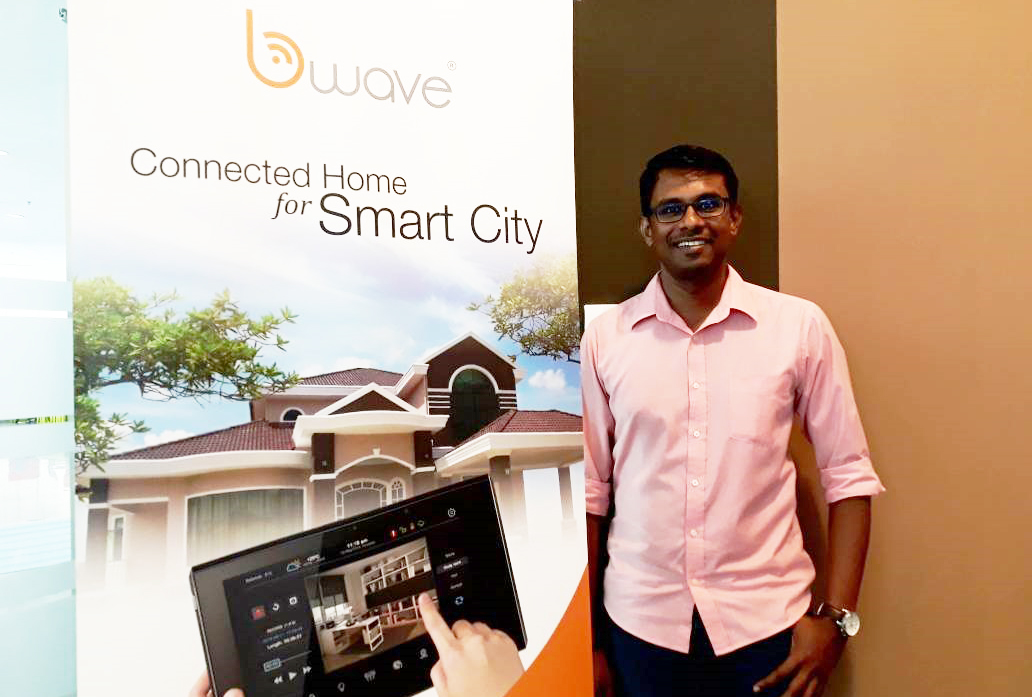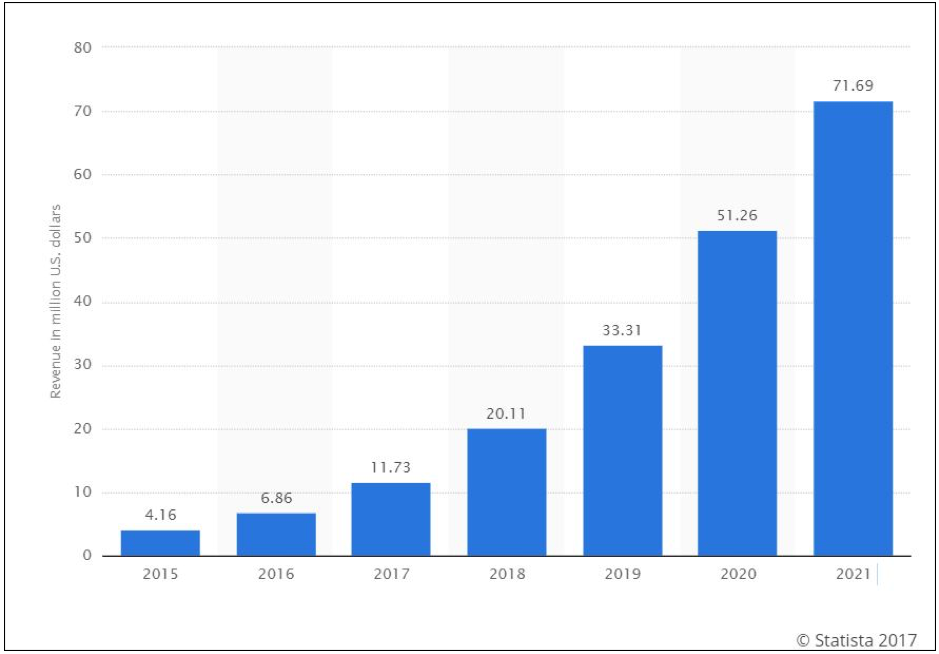Making smart homes more affordable
By Sharmila Ganapathy May 24, 2018
- Ten years ago, it costs as much as RM10,000 to own a smart home system
- Plan is to target the Malaysia, Singapore and India markets.

WITH smart home devices such as Google Home and Amazon’s Alexa becoming more commonplace in Malaysian homes, it’s no wonder that Statista.com has said the overall revenue of the smart home automation market in Malaysia is forecast to reach US$51.26 million in 2020, from just US$4.16 million in 2015.

The statistics above show a revenue forecast for the smart home automation market in Malaysia from 2015 to 2021 (in million US dollars).
Capitalising on this new trend is homegrown smart home solutions maker BNetworks Sdn Bhd, which was co-founded by chief executive officer Tharma Indran (pic) and chief technology officer Yuri Klimets back in 2013. The company has won multiple awards for its smart home solutions system called bWave, including MSC Apicta awards.
According to Tharma, their clients include a local hotel and property developers such as IJM Land, Aspen Group and SPNB.
“We are currently doing a proof of concept for a hotel in KL and another in JB,” he says, adding also that they have recorded RM4 million in sales to date from their smart home systems to property developers and hotels.
A bumpy start
Ten years ago, it was a different story, Tharma says. “Smart home systems then were all proprietary systems. “If someone created a gateway, it only worked with their own platforms and the cost was very high; to own a system would cost you between RM10,000 and RM20,000. They typically were all hardwired and cabled devices, pre-cloud and pre-IoT [Internet of Things] era.”
The bad news was that when technology changed three years later, everything changed and the devices were no longer valid. Smart home systems back then were only applicable for greenfield properties.
Tharma, who has been in the smart home industry for 14 years, decided to go out on his own in 2013.
“How my co-founder Yuri and I decided was we anticipated that smart home systems would be different from the existing ones and the employer we were working for at the time was not ready to accept that,” he recalls.
“The operational costs were exceptionally high for us and we decided that it has to be something wireless, open technology and can be easily scaled.
“Along the way, we anticipated that the market would be moving towards open platforms and that the device prices would come down. So, we started to create our own hub, a universal hub that can support existing wireless technologies as well as those coming within the next four to five years,” Tharma explains.
How the bWave system works
The bWave universal hub is based on a modular concept that requires dongles, Tharman says. “We know that 90% of customers will be using either WiFi or Bluetooth. Also, the technologies require regulatory compliance, SIRIM for instance charges RM10,000 per wireless protocol. By using dongles, the cost of ownership is reduced.”
He adds that the hub is already FCC and CE approved. “We have filed a patent for the universal hub and another for our IoT platform.”
He explains that when one buys different devices, the platform and hub help connect them to each other.
“For the end user, the product is the app. The IoT hub has a very long lifecycle that is easily adaptable to changes, with the only exclusion being Apple products.”
According to Tharma, for end users, it costs less than RM3,000 to own the bWave smart home system.
“We have not launched to the retail market yet. We hope to launch in 4Q 2018 or 1Q 2019. The reason being the perception that the smart home solution costs more. We’re going through property developers who can factor it into the acquisition costs. This makes it easier for market awareness and for users to get familiar with the systems,” he explains, when asked about the launch for retail users.
Next page: Smart homes, the world over


